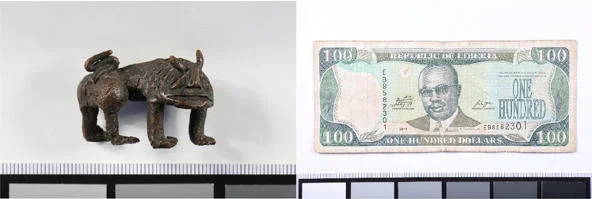REF2021 - Economic History

Impact Case Studies
Leigh Gardner: Currency revolutions in Africa: creating an open access online resource

Left: Akan gold weight; Right: 100 dollars, Liberia © Smithsonian Institution
In collaboration with the Smithsonian Institution, Leigh Gardner has developed new digital collections showcasing the monetary history of West Africa and South Africa. These currencies provide a window into the histories of trade, politics, and culture with different monetary forms used for different types of transaction. Changes in which currencies were used and where reflect the complex legacies of colonial rule and decolonisation. Curated sub-collections tailored to the history curriculum of schools in the United States and South Africa are available through the Smithsonian Learning Lab.
Read more about Leigh's case study: Currency Revolutions in Africa
Albrecht Ritschl: Raising historical awareness among German civil servants and economic policymakers

Image: Bundesministerium fur Wirtschaft und Energie
German government ministries have recently commissioned research to confront their Nazi past and to raise historical awareness among staff and the public. Albrecht Ritschl led a large research project on the history of the Economics Ministry, challenging the received view of profound disconnection of the pro-market post-war economy from its interventionist, near-socialist past. Instead, continuities and the importance of acknowledging their historic culpability were uncovered. Recognition of the past actions of the Economics Ministry has allowed it to reckon with its difficult past and contributed to the process of commemoration of those murdered and dispossessed.
Read more about Albrecht's case study: Raising Historical Awareness among German civil servants and economic policymakers
What is REF2021?
Click below for full details.